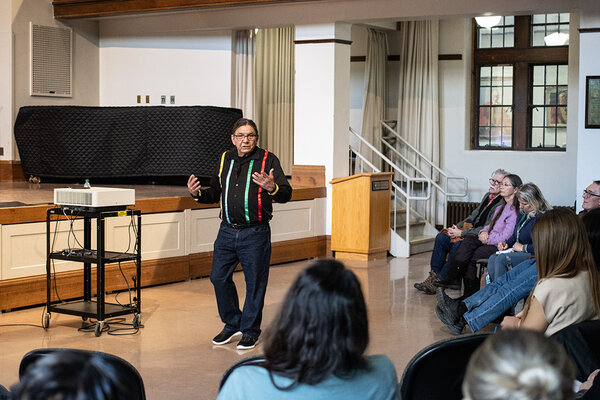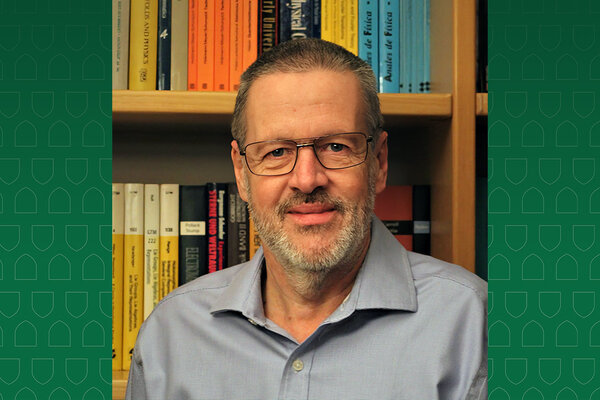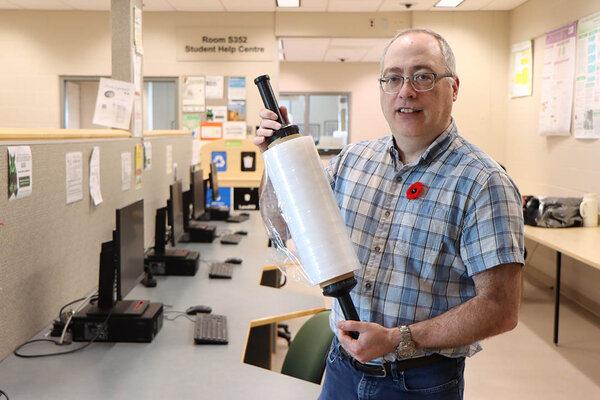
Professor Anthony Kusalik to be honoured with Distinguished Graduate Supervisor Award
Kusalik is a regular collaborator with experts in engineering and life and health sciences and is renowned for his knowledge of bioinformatics
By Shannon Boklaschuk
A faculty member in the College of Arts and Science is being celebrated for his commitment to his students and for his strengths as a graduate supervisor.
Professor Anthony (Tony) Kusalik, from the Department of Computer Science, will receive the Distinguished Graduate Supervisor Award at the University of Saskatchewan’s 2018 Fall Convocation on Oct. 27.
In an interview, Kusalik described the recognition as an honour.
“Being a prof nowadays is a difficult job; it’s very demanding,” he said. “One of the rewarding experiences is working with your grad students. To be recognized with an award that I’m doing a good job is really nice. It’s fulfilling. You feel good at the end of the day—somebody appreciates all the effort you’re putting in.”
A faculty member at the U of S since 1985, Kusalik is a regular collaborator with experts in engineering and life and health sciences and is renowned for his knowledge of bioinformatics and for his passion for research. He has also been lauded for his efforts to help his students through both personal and academic difficulties and to guide them through the process of completing their graduate degrees.
An award nomination package prepared in support of Kusalik noted that “he has a reputation, among students and colleagues, for superior supervisory and mentoring ability, including the ability to interest, stimulate and excite students and to motivate them to achieve high standards.”
The nomination package also stated that Kusalik’s past students have been successful at obtaining jobs at leading companies and institutions in their fields.
“My students have done well in terms of awards and that sort of thing, so that is another indication of success and fulfillment and the like,” Kusalik said in the interview.
Kusalik noted he’s been at the U of S “for a long time,” and he now sees children of former students in his classes. He’s been contacted by former students who want to talk about their children.
“That’s also an indication that one’s been around for a while,” he said with a chuckle.
Farhad Maleki was one of Kusalik’s students for almost five years and wrote a letter in support of Kusalik’s award nomination. Maleki noted “the support and encouraging approach by Dr. Kusalik” has made students in the bioinformatics lab highly successful in publishing their research—an important factor in the students’ success. For example, recent PhD graduate Brett Trost was awarded the Vanier Canada Graduate Scholarship and the Governor General’s Gold Medal for his PhD thesis work. Kimberly MacKay, one of Kusalik’s current PhD students, also received a Vanier Scholarship.
“As for myself, I am preparing to be a Google engineer after graduation,” wrote Maleki. “This has been my passion and my study under Dr. Kusalik in the bioinformatics lab helped me to acquire various skill sets required to be qualified for this job.”
Trost, who is now a postdoctoral fellow at The Hospital for Sick Children in Toronto, wrote in a letter of support that despite being surrounded by new people and new challenges, Kusalik’s mentorship, guidance and friendship continue to help and inspire him. Trost also noted that “Dr. Kusalik never hesitates to devote time to his students.”
“Although cliché, the phrase ‘his door is always open’ definitely applies to him,” Trost wrote.
“When I would drop by his office, he would never ask me to come back another time, even when he was extremely busy. He always replies to emails in a timely manner, despite the dozens of emails he receives every day. Furthermore, he devotes an extraordinary amount of time to reading and critiquing his students’ writing. Whenever I received his comments on something I wrote, I was always deeply impressed by the careful thought that was obviously put into them. There was never any shortage of comments regarding style, grammar, content and clarity, and it was obvious that his intelligence, experience and wisdom informed all of them.”
In her letter to the award committee, MacKay wrote that Kusalik prioritizes student success, encourages students to develop additional professional skills, fosters open communication and encourages collaboration. She described Kusalik as a role model to his students, noting that as she progresses in her academic career she finds herself asking, “What would Tony do?”
“Being one of Tony’s students means that you will learn a lot more in graduate school than just how to do research. He has spent countless hours helping me improve my writing, presentation, review and supervision skills,” MacKay wrote.
“For instance, in the last year of my M.Sc. he gave me the opportunity to gain experience composing and submitting a grant application. Additionally, he has invited me to co-review a variety of research articles submitted to international bioinformatics conferences. The skills I have gained from these experiences will be invaluable for my future in academia.”


